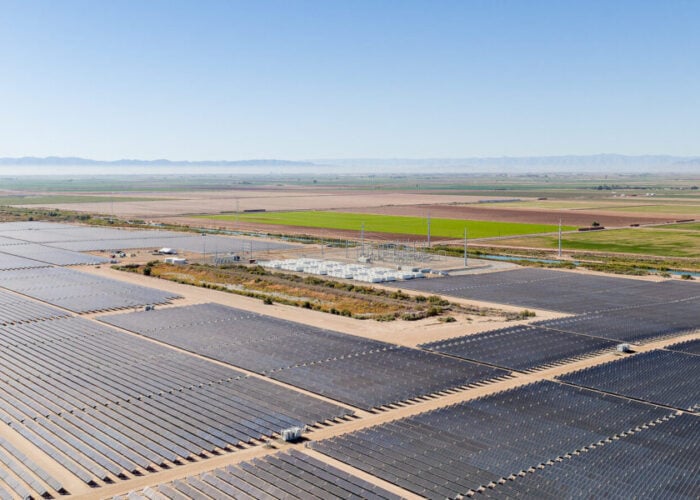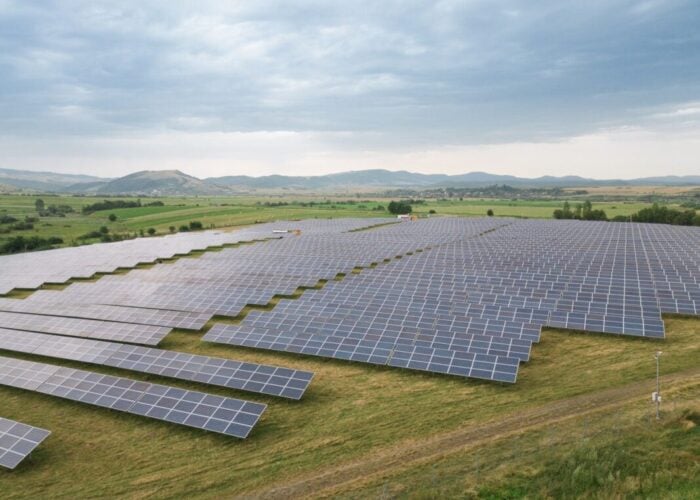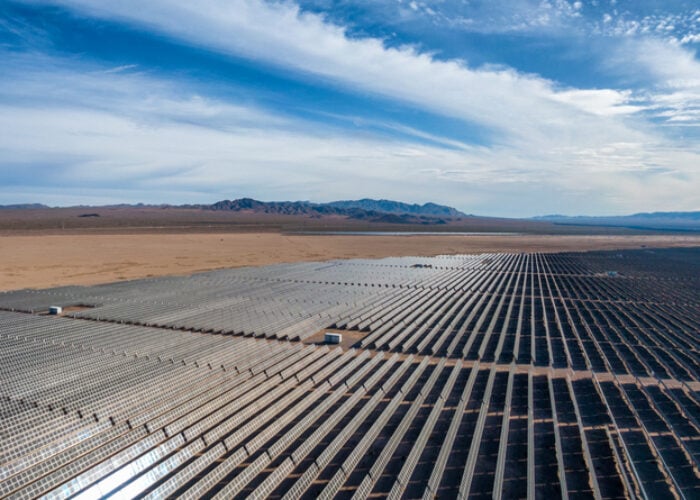
The US House of Representatives has passed a bill slashing tax credit provisions for clean energy projects.
The “One, Big, Beautiful Bill” will remove almost all Inflation Reduction Act (IRA) tax credits for renewable energy projects, with looser restrictions for advanced nuclear projects. The bill will now pass through the US Senate, where its specifics may be subject to change.
Try Premium for just $1
- Full premium access for the first month at only $1
- Converts to an annual rate after 30 days unless cancelled
- Cancel anytime during the trial period
Premium Benefits
- Expert industry analysis and interviews
- Digital access to PV Tech Power journal
- Exclusive event discounts
Or get the full Premium subscription right away
Or continue reading this article for free
The House submitted a draft of the bill last week, which was met with broad criticism from the renewable energy industry.
The version of the bill passed yesterday goes further than the draft. The bill will eliminate the IRA’s 30% production tax credit and investment tax credit (PTC/ITC) for all clean energy projects which do not begin construction within 60 days of its enactment. Projects that meet that deadline will need to be operational by 31 December 2028 in order to retain the credit.
Provisions for residential renewable energy projects are also set to expire by the end of 2025.
The 45X Advanced Manufacturing Credit has been preserved until 2029, after which it will decrease to 75% in 2030, 50% in 2031 and end in 2032.
The bill also introduces strict “Foreign Entities of Concern” (FEOC) restrictions, which apply to the ITC, PTC, 45X and other credits. These limit the ownership, control and certain financial involvement of US companies by designated “Specified Foreign Entities” or “Foreign-Influenced Entities”. For solar PV and energy storage, these essentially amount to limits on Chinese involvement in the US market. PV Tech Premium analysed the draft FEOC language earlier this week.
Tax credit transferability – the mechanism allowing credits to be sold for cash and broadening the scope of potential recipients – was limited for certain credits and ended early for others, but sustainable finance firm Crux said that the provision was treated “more favourably” in the bill than in last week’s draft.
‘Engineer an energy crisis’
Since the bill passed, a chorus of renewable energy professionals, companies and industry representatives have voiced condemnation and concern.
Abigal Ross Hopper, head of the Solar Energy Industries Association (SEIA), said that, in its current form, the legislation would: “Upend an economic boom in this country that has delivered an historic American manufacturing renaissance, lower electric bills, hundreds of thousands of good-paying jobs and tens of billions of dollars of investments primarily to states that voted for president Trump.”
She continued: “Hundreds of factories will close. Hundreds of billions of dollars in local investments will vanish. Hundreds of thousands of people will lose their jobs. Families will lose the freedom to control their energy costs. And our electric grid will be destabilised.”
SEIA previously warned that the bill could see the closure of up to 300 US solar and energy storage manufacturing facilities and the loss of up to 300,000 jobs.
Scott Elias, director of policy & market development at renewables investment firm CleanCapital said the bill “threatens US energy development and risks ceding the AI race and tech leadership to China.
“Put simply, Congress is now one chamber away from passing a law that would dramatically increase project risk, reduce investment certainty, cancel previously announced projects and investments and stall clean energy deployment.”
The cliff edge end to ITC and PTC credits should, perhaps, not be entirely surprising. Plans announced prior to Donald Trump’s election in the ultra-conservative Project 2025 document laid out the removal of Biden-era energy credits and ending the reliance on “unreliable renewables”. However, until recently, many in the renewable energy industry thought that the IRA would broadly survive, perhaps with some trimming around the edges.
Gretchen Goldman, president of US nonprofit the Union of Concerned Scientists, said: “The House has done its level best to engineer an energy crisis, deliberately sidelining the clean energy industry at the exact moment we need it most.”
Posting on LinkedIn with similar sentiments, senior policy analyst at Clean Energy Associates, Christian Roselund, wrote: “It appears there is no longer any need to debate semantics regarding whether or not the US House budget bill is a full repeal of IRA clean energy tax credits.
“Politics are not exact reflections of economic interests; ideology also plays a role. The latter should not be underestimated.”
Eyes now turn to the Senate, where lobbyists and industry voices hope to soften some of the most draconian parts of the bill.
Hopper said: “It’s not too late for Congress to get this right. The solar and storage industry is ready to get to work with the US Senate on a more thoughtful and measured approach to unleashing true American energy dominance to create a brighter future for all Americans.”
CEO of the American Council on Renewable Energy (ACORE), Roy Long, said: “As ACORE’s own survey of clean energy investors showed, recklessly disrupting tax incentives will undermine projects that are ready to come online, meet our nation’s growing energy needs, and create jobs. ACORE is committed to working with Congress and president Trump to make any improvements to this legislation and help them deliver on his promise to slash energy costs for Americans by 50%. It’s time to achieve American energy dominance across all technologies.”






